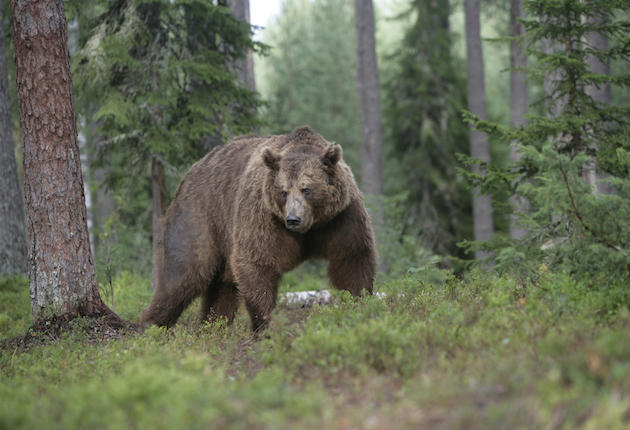It’s been seven years since the unbelievable invasion of a Kamchatka mining area by 30 brown bears, but the animals are still so ravenous they are turning to humans as a food source. Experts are calling for more hunting license sales at cheaper rates after ten people were injured in 2015, the Russian news agency TASS reported Thursday.
International wildlife experts made the recommendation after analyzing the threat posed by the bears on residents of a large area in the Russian Far East. Bears have taken to wandering the streets of various villages, eating any refuse they can find and scaring the locals. Ten people have been hurt, with one dying, as a result of bear attacks in 2015; the latest attack left two boys, 8 and 12, in the hospital. As the brutal Russian winter sets in, that number will likely rise as bears find it increasingly difficult to acquire calories.
Only 84 licenses have been sold in 2015, leading the bear expert to suggest the changes. For some, any changes now will still be too late.
Cover Image: Thinkstock

